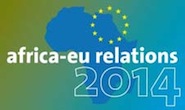Dominique Dellicour of EuropeAid’s Governance, Security, Justice, Human Rights and Gender unit introduces the EC policy document ‘Analysing and Addressing Governance in Sector Operations’ in this video interview. “Democratic governance is more and more at the centre stage of sector operations” she says adding that “There was more and more realisation that although technical and economic aspects are important in defining a sector operation, the sector governance set up and the related politics do matter substantially.” In a related video, ECDPM’s Jean Bossuyt provides an informative and instructive presentation on the practicalities of putting the ...
A new book from the WTO entitled “Governments, Non-State Actors and Trade Policy-Making: Negotiating Preferentially or Multilaterally?” analyses the approaches and impact of domestic non-state actors (NSAs) in eight developing countries on national government’s decisions on whether to conduct international trade cooperation via preferential trade agreements or at the WTO. The book provides information on the role of NSAs in national policy formulation and the ‘optimum’ modes of cooperation with governments. It also analyses what these findings says about the drivers of multilateralism and regionalism/preferentialism in terms of domestic political and economic interests.
Over the past decade, the European Commission has increasingly used general and sector budget support to ACP countries as preferred aid modalities. This choice was motivated by the commitment of donors to make aid more effective. But despite the potential of the new generation of budget support and the so-called “sector wide approach”, budget support has come under pressure within donors and partner countries for a variety of reasons. Therefore, the European Commission has launched a public consultation to solicit the views of stakeholders. It seeks to find out and socialise what has and hasn’t ...
“The European Consensus on Development is a sort of common policy, but remains very intergovernmental […] there are no mechanisms to enforce aid effectiveness at a European level […] and that is a challenge in the global projection of development policy with the new EU Lisbon Treaty” said Stefano Manservisi, then Director General of the European Commission’s Development Directorate at last year’s European Development Days. Building on this during a debate with members of the European Parliament’s Development Committee earlier this year, European Development Commissioner Andris Piebalgs stressed that in the absence of a legally-binding ...
African countries need to be prepared to pool their sovereignty and entrust their collective sovereignty to common institutions that are given appropriate powers of action in order to ensure continental integration according to a report by ECDPM and the Nordic Africa Institute entitled “Building the African Union: An assessment of past progress and future prospects for the African Union’s institutional architecture”. The report comprises analysis and a collection of papers presented by African and European policy-makers and researchers at an informal, high-level seminar which considered progress in the Pan-African integration agenda; the continuing development of ...
Decentralization has been an important reform in many developing countries and a major focus of the considerable support provided by development partners to public sector reform. Yet its record is mixed at best in terms of realizing many of the stated objectives of reform, such as enabling more efficient service delivery, advancing democratic reform, and promoting economic development and poverty reduction. The underlying premise of this World Bank publication is that systematic analysis of political economy issues can productively complement the dominantly technical diagnostic work carried out by development partners seeking to undertake decentralization reforms. ...
Fourteen minerals and metals are considered of critical importance to the EU. The EU’s Raw Materials Initiative is meant to ensure undistorted access for the benefit of its own industries, including through trade policy measures aimed at eliminating export restrictions in supply markets in the major producers of critical raw materials. Few African countries fall into this category, although many others have the potential in the future to increase their production. However, many African countries are heavily reliant on exports of raw materials to generate revenue according to a presentation from ECDPM’s Isabelle Ramdoo to ...
The European External Action Service’s (EEAS) organigramme shows an EEAS split into five geographic departments and one thematic department called ‘Multilateral Thematic’. A tag line says “a service for conflict prevention, security and stability”. This is a far cry from the revolutionary ‘sui generis’ coordinating body of all EU external action it was heralded to be writes the Overseas Development Institute’s Mikaela Gavas on ODI’s European Development Cooperation website. ‘Consistency in external action’ will be hard to achieve, she argues, with six separate departments. And development cooperation is conspicuously absent. This in spite of the ...
At the global level, the Commission supports (Click also here) the idea of a Financial Transactions Tax (FTT), which could help fund international challenges such as development or climate change. At EU level, the Commission recommends that a Financial Activities Tax (FAT) would be the preferable option. The Commission will present these ideas to the 19 October EU Economic and Finance Council which will also prepare its terms of reference for the G20 Finance Ministers meeting to be held on 22-23 October. The 28-29 October European Council will set the Union’s position for the G20 ...
The Economic Partnership Agreements between the EU and African, Caribbean and Pacific countries have now been under negotiation for eight years, and at this point there is still no clear end in sight. Worryingly, the protracted EPA talks have increasingly become a source of tension in the EU’s relationship with its ACP partners. In this month’s lead article of TNI, ECDPM’s San Bilal and Isabelle Ramdoo explore possible ways out of the current impasse in the EPA process. Another explains Barbados’ approach to implementing the EPA. Another articles examines how the banking crisis in Europe ...

















